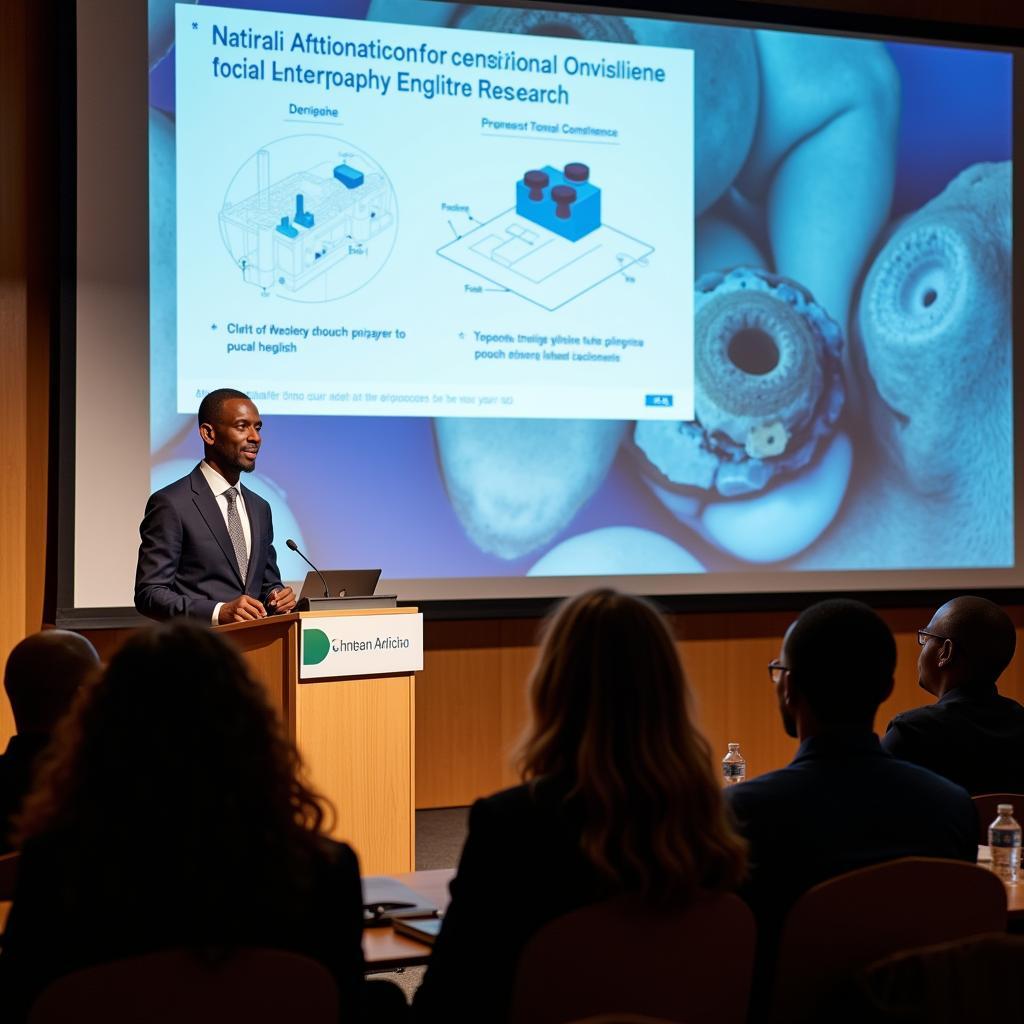African Biomedical Engineering Mobility: A Continent on the Rise
African Biomedical Engineering Mobility is experiencing a period of dynamic growth, driven by a combination of factors including increasing investment in healthcare, a burgeoning tech scene, and a growing recognition of the critical role biomedical engineers play in improving health outcomes. This surge in activity encompasses not just the movement of engineers within Africa, but also the exchange of knowledge and expertise with institutions globally.
The Expanding Landscape of Biomedical Engineering in Africa
Biomedical engineering in Africa is evolving rapidly. The continent faces unique healthcare challenges, from managing infectious diseases like malaria and HIV/AIDS to addressing the growing burden of non-communicable diseases. These challenges demand innovative solutions, creating a fertile ground for biomedical engineering to flourish. Several countries are leading the charge, establishing dedicated biomedical engineering programs and fostering collaborations between universities, hospitals, and research institutions. This collaborative environment is crucial for driving innovation and developing context-specific solutions to address Africa’s diverse healthcare needs.
The rise of mobile technology and increased internet access are also transforming the landscape. Telemedicine, remote diagnostics, and mobile health applications are becoming increasingly prevalent, opening up new opportunities for biomedical engineers to develop and implement solutions that reach even the most remote communities.
 African biomedical engineers collaborating on a mobile health project
African biomedical engineers collaborating on a mobile health project
Driving Forces Behind African Biomedical Engineering Mobility
Several key factors contribute to the increasing mobility of biomedical engineers in Africa. The demand for skilled professionals within the continent is high, leading to opportunities for engineers to move between countries for work or further education. This intra-continental movement fosters knowledge sharing and strengthens regional networks. Furthermore, collaborations with international institutions are becoming increasingly common. African engineers are seeking training and research opportunities abroad, while international experts are contributing their expertise to projects within Africa. This bidirectional exchange of knowledge and skills is crucial for advancing the field and building capacity within the continent.
Another important factor is the growing recognition of the importance of context-specific solutions. Biomedical engineers trained in Africa possess a deep understanding of the local challenges and cultural nuances, enabling them to develop solutions that are tailored to the specific needs of their communities. This localized approach is essential for ensuring that technological advancements are relevant, accessible, and sustainable within the African context.
Funding and Support for Biomedical Engineering Initiatives
Funding for biomedical engineering initiatives in Africa is also on the rise. International organizations, governments, and private foundations are recognizing the potential for innovation in the field and are investing in research, training, and infrastructure development. This increased funding is essential for supporting the growth of the sector and enabling African biomedical engineers to pursue cutting-edge research and develop impactful solutions.
 Modern biomedical engineering lab in Africa
Modern biomedical engineering lab in Africa
Challenges and Opportunities in African Biomedical Engineering Mobility
While the field of African biomedical engineering mobility is brimming with promise, it also faces certain challenges. Brain drain remains a concern, as talented engineers may be drawn to opportunities in more developed countries. Addressing this requires creating a supportive ecosystem within Africa that provides competitive salaries, research funding, and career development opportunities. Another challenge is ensuring equitable access to training and resources across the continent. Efforts are needed to bridge the gap between resource-rich and resource-constrained regions, ensuring that all aspiring biomedical engineers have the opportunity to reach their full potential.
Despite these challenges, the future of African biomedical engineering mobility is bright. The continent’s young and dynamic population, coupled with its growing technological capabilities, presents a unique opportunity to drive innovation and improve healthcare outcomes for millions. By fostering collaboration, investing in education and research, and addressing the existing challenges, Africa can unlock the full potential of its biomedical engineering talent and become a global leader in healthcare innovation.
How can African governments further support biomedical engineering development?
African governments can play a crucial role in supporting biomedical engineering by increasing funding for research and development, establishing dedicated biomedical engineering programs in universities, and creating policies that encourage innovation and entrepreneurship in the healthcare sector.
 African biomedical engineer presenting research at international conference
African biomedical engineer presenting research at international conference
Conclusion
African biomedical engineering mobility is a vital component of the continent’s ongoing healthcare transformation. By investing in training, research, and infrastructure, and by fostering collaboration between African institutions and their global counterparts, we can empower African biomedical engineers to develop innovative solutions that address the unique healthcare needs of the continent and improve the lives of millions. African biomedical engineering is not just about mobility, it’s about building a healthier and more prosperous future for Africa.
FAQs
- What is biomedical engineering? Biomedical engineering is the application of engineering principles and design concepts to medicine and biology for healthcare purposes.
- Why is biomedical engineering important in Africa? Biomedical engineering is crucial for addressing Africa’s unique healthcare challenges and developing context-specific solutions.
- How can I become a biomedical engineer in Africa? Several universities in Africa offer biomedical engineering programs. Research these programs to find the best fit for your interests and career goals.
- What are the career prospects for biomedical engineers in Africa? Career prospects are promising, with growing demand for skilled biomedical engineers in hospitals, research institutions, and the private sector.
- What are some examples of biomedical engineering innovations in Africa? Examples include mobile health applications, telemedicine platforms, and low-cost diagnostic devices.
- How can I contribute to the development of biomedical engineering in Africa? You can contribute by supporting organizations working in this field, volunteering your skills and expertise, or pursuing a career in biomedical engineering.
- What are some key organizations involved in promoting biomedical engineering in Africa? Research institutions, universities, and NGOs are all playing a role. You can find more information online.
Other Related Articles:
- The Future of Healthcare in Africa
- Emerging Technologies in African Healthcare
- Investing in African Innovation
Need support? Contact us 24/7: Phone: +255768904061, Email: [email protected], or visit us at Mbarali DC Mawindi, Kangaga, Tanzania.

